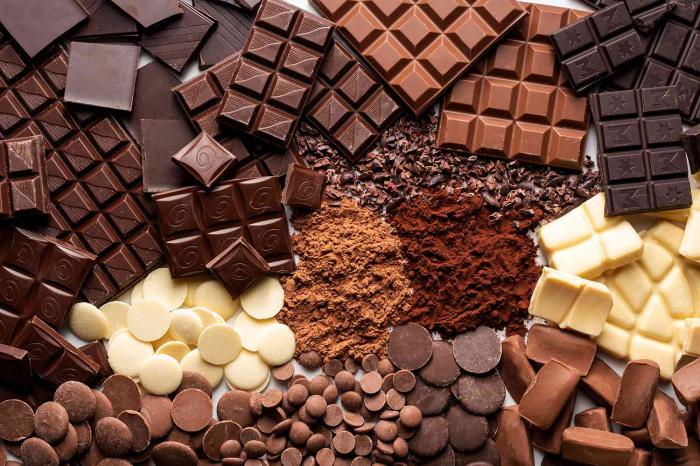Many new mothers wonder about their diet while breastfeeding. One common question is whether it’s safe to eat chocolate. Chocolate is a beloved treat for many, but some concerns exist about its effects on breastfeeding. This article will explore the safety of eating chocolate while breastfeeding, its potential effects on both mother and baby, and guidelines for enjoying this sweet treat.
The Basics of Breastfeeding Nutrition
During breastfeeding, a mother’s diet plays an important role in her health and her baby’s development. What a mother eats can influence the quality of her breast milk. It is essential to focus on a balanced diet rich in nutrients. This includes fruits, vegetables, whole grains, lean proteins, and healthy fats.
Chocolate can be part of a healthy diet if consumed in moderation. However, understanding its components is key to determining how it may affect both mother and baby.
Nutritional Content of Chocolate
Chocolate comes in various forms, including dark, milk, and white chocolate. Each type has different nutritional profiles. Here are some key points:
Dark Chocolate: Dark chocolate contains a higher percentage of cocoa and is rich in antioxidants. It also has less sugar than milk chocolate. The higher cocoa content provides health benefits but should still be consumed in moderation.
Milk Chocolate: Milk chocolate is sweeter and creamier, with more sugar and fat. While it can be enjoyable, it contains fewer health benefits than dark chocolate.
White Chocolate: White chocolate does not contain cocoa solids, meaning it lacks the antioxidants found in dark chocolate. It is primarily made of sugar and fat.
Understanding these differences can help mothers make informed choices about the type and amount of chocolate they consume.
Caffeine Content in Chocolate
Chocolate contains caffeine, a stimulant that can affect both mother and baby. The caffeine content varies depending on the type of chocolate:
Dark Chocolate: Contains about 20-30 mg of caffeine per ounce.
Milk Chocolate: Contains around 5-10 mg of caffeine per ounce.
White Chocolate: Contains little to no caffeine.
While moderate caffeine intake is generally considered safe for breastfeeding mothers, excessive consumption may lead to irritability and sleep disturbances in infants. The American Academy of Pediatrics recommends limiting caffeine intake to about 300 mg per day, which is roughly equivalent to two to three cups of coffee.
Effects of Chocolate on Breastfeeding
Most studies indicate that eating chocolate in moderation is safe for breastfeeding mothers. However, some points should be considered:
Baby’s Reaction: Some infants may be sensitive to certain foods in their mother’s diet, including chocolate. If a mother notices signs of discomfort or allergic reactions in her baby after consuming chocolate, it may be best to limit or avoid it.
Sugar and Fat: Many chocolate products contain high levels of sugar and fat. Excessive consumption of these can lead to weight gain and other health issues in mothers. It’s important to choose high-quality chocolate and consume it in moderation.
Emotional Benefits: Chocolate can have positive effects on mood. Many mothers find that enjoying a small piece of chocolate can provide comfort and improve emotional well-being during the demanding early months of motherhood.
Guidelines for Eating Chocolate While Breastfeeding
Here are some practical guidelines for breastfeeding mothers who wish to enjoy chocolate:
Choose Dark Chocolate: Opt for dark chocolate with a high cocoa content. It has more health benefits and less sugar than milk chocolate.
Moderation is Key: Enjoy chocolate in moderation. A small piece a few times a week is generally safe and satisfying.
Monitor Baby’s Response: Pay attention to how your baby reacts after you consume chocolate. If you notice any unusual behavior or discomfort, consider reducing or eliminating chocolate from your diet.
Limit Sugary Options: Avoid overly sugary chocolate treats. Look for options with natural sweeteners or lower sugar content.
Balance Your Diet: Ensure that chocolate consumption does not replace more nutritious foods in your diet. Maintain a balanced and varied diet to support your health and milk production.
Potential Benefits of Chocolate
In addition to satisfying your sweet tooth, chocolate has some potential health benefits:
Rich in Antioxidants: Dark chocolate is packed with antioxidants, which can help combat free radicals in the body. This may reduce the risk of chronic diseases.
Heart Health: Some studies suggest that moderate dark chocolate consumption may support heart health by improving blood flow and lowering blood pressure.
Mood Booster: Chocolate has been shown to increase serotonin levels, which can help improve mood and reduce stress. This can be especially beneficial for new mothers facing postpartum challenges.
See also: Which Vegetables Not to Eat While Breastfeeding
Conclusion
In conclusion, it is generally safe for breastfeeding mothers to eat chocolate in moderation. Choosing high-quality dark chocolate can provide health benefits while satisfying cravings.
It’s essential to maintain a balanced diet and be mindful of your baby’s reactions to certain foods. If chocolate seems to upset your baby or if you have concerns, consult with a healthcare professional for personalized advice.
Ultimately, enjoying chocolate can be part of a healthy breastfeeding experience, bringing joy and comfort during this special time in your life.
Related topics:


